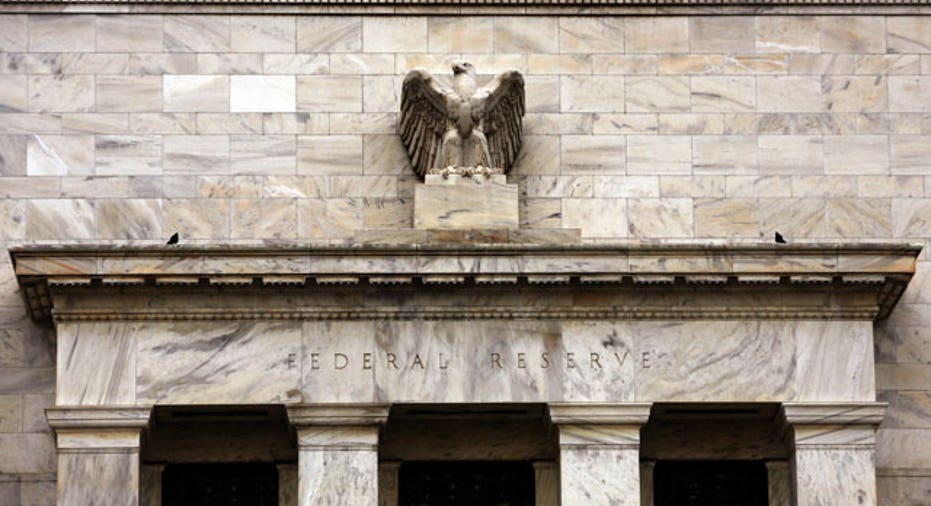Citi, Four Others Face Fed Rejection on Capital Plans

Citigroup’s (NYSE:C) shares fell more than 5% in after-hours trading Wednesday after the Federal Reserve rejected the bank’s capital plan, saying it “reflected a number of deficiencies” in planning practices.
Four other financial firms joined the No. 3 U.S. bank by assets on the central bank’s rejection list. The group of five will have 90 days to resubmit their plans.
The Fed can reject banks’ plans for raising dividends and stock buybacks if the lenders don’t meet the central bank’s minimum standards for capital and crisis planning.
Meanwhile, the other 25 big U.S. banks the Fed probed as part of its stress tests received a green light to go ahead with their capital plans.
Two of those, JPMorgan Chase (NYSE:JPM) and Morgan Stanley (NYSE:MS), promptly announced they were raising their quarterly dividends.
The 30 large banks examined by the Fed all have more than $50 billion in assets. They range from the too-big-to-fail lenders such as Citigroup, JPMorgan and Bank of America (NYSE:BAC), to the smallest in the category, Zions Bancorp (NASDAQ:ZION) with a total of $56 billion in assets.
Zions was one of the five banks asked to resubmit a capital plan.
The stress tests are conducted annually using an array of hypothetical doomsday scenarios to determine whether the banks can withstand another economic shock similar to or worse than the circumstances that brought about the 2008 financial crisis.
The tests are a direct result of the $700 billion government bailout needed to ensure that many of the world’s largest banks didn’t fail in the immediate wake of the crisis, setting off a domino-effect that could have devastated the global economy.
New regulations that require banks to hold additional capital and develop specific plans for addressing severe market downturns were approved in an effort to prevent another taxpayer supported bailout.
This is the second time Citigroup has come up short in the Fed’s stress testing. It also had to resubmit its capital plan in 2012.
In its current report, the Fed said Citigroup had made “considerable progress” toward improving its risk management and control practices in recent years. But that its 2014 capital plan did not show “sufficient improvement” in areas that in the past had been identified as deficient.
Issues that fell short by the Fed’s standards included Citigroup’s ability to project revenue and losses under a stressful scenario at important segments of the bank’s global operations.
“Taken in isolation, each of the deficiencies would not have been deemed critical enough to warrant an objection, but, when viewed together, they raise sufficient concerns regarding the overall reliability of Citigroup’s capital planning process to warrant an objection to the capital plan and require a resubmission,” the Fed said.
"We will continue to work closely with the Fed to better understand their concerns so that we can bring our capital planning process in line with their expectations and meet their standards on a qualitative basis as well. We have not yet made a decision as to when we will resubmit our plan,” Citigroup’s CEO Michael Corbat said in a statement.
The other banks whose capital plans were rejected were HSBC (NYSE:HSBC) North America Holdings, RBS Citizens, a unit of Royal Bank of Scotland (NYSE:RBS), and Santander (NYSE:SAN) Holdings USA.
Other than Citigroup, each four of the banks asked to resubmit capital plans had never before participated in the annual stress tests, a situation noted by the Fed.
“Although the Federal Reserve has different expectations for (banks) new to (the stress tests), weaknesses at HSBC, RBS Citizens, and Santander were considered significant enough to warrant an objection based on the Federal Reserve’s qualitative assessment,” the central bank said.
The Fed said it objected to HSBC’s and RBS Citizens’ plans due to “significant deficiencies” in their capital planning processes, including inadequate governance and weak internal controls around the processes. Santander’s plan was rejected due to “widespread and significant deficiencies” across the bank’s capital planning processes.
The three big foreign firms that got turned down cannot send dividends or generally repatriate cash back to their parent companies until they their plans are approved.
Salt Lake City-based Zions found out last week it had failed the Fed’s stress tests by not being able to show it could maintain a minimum tier 1 common capital ratio of 5% during a severe economic downturn. Zions' tier 1 capital ratio fell to 3.5% during the most severe stress scenario, below the minimum, according to the Fed’s results.



















